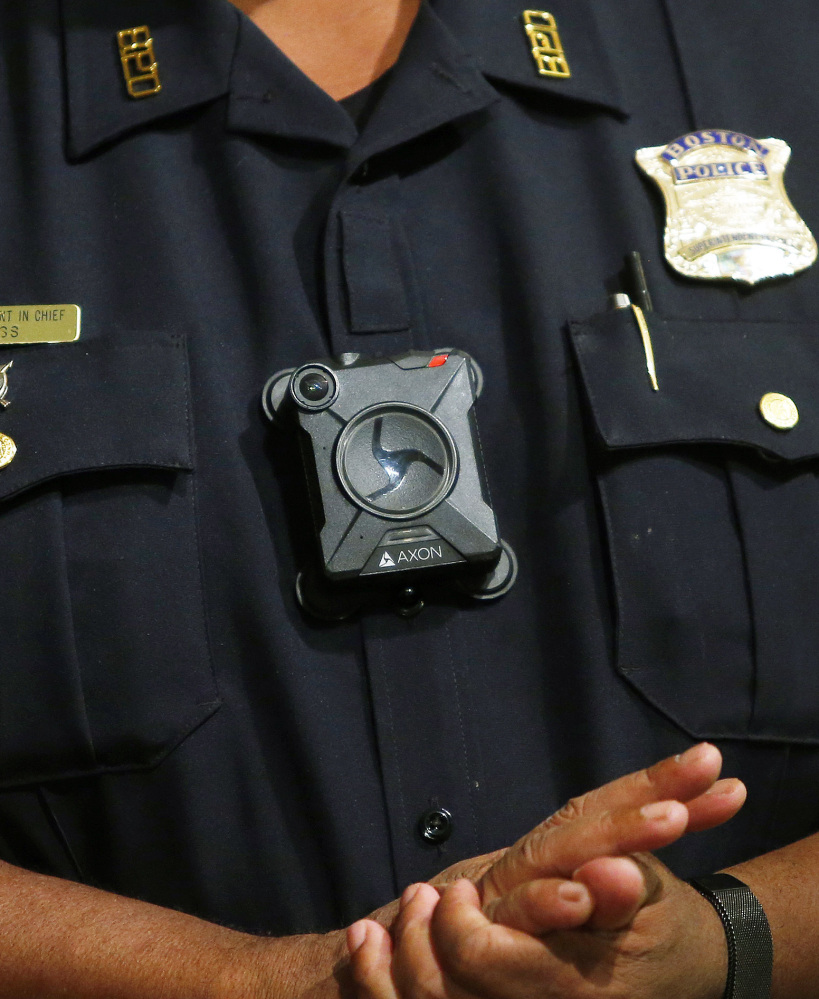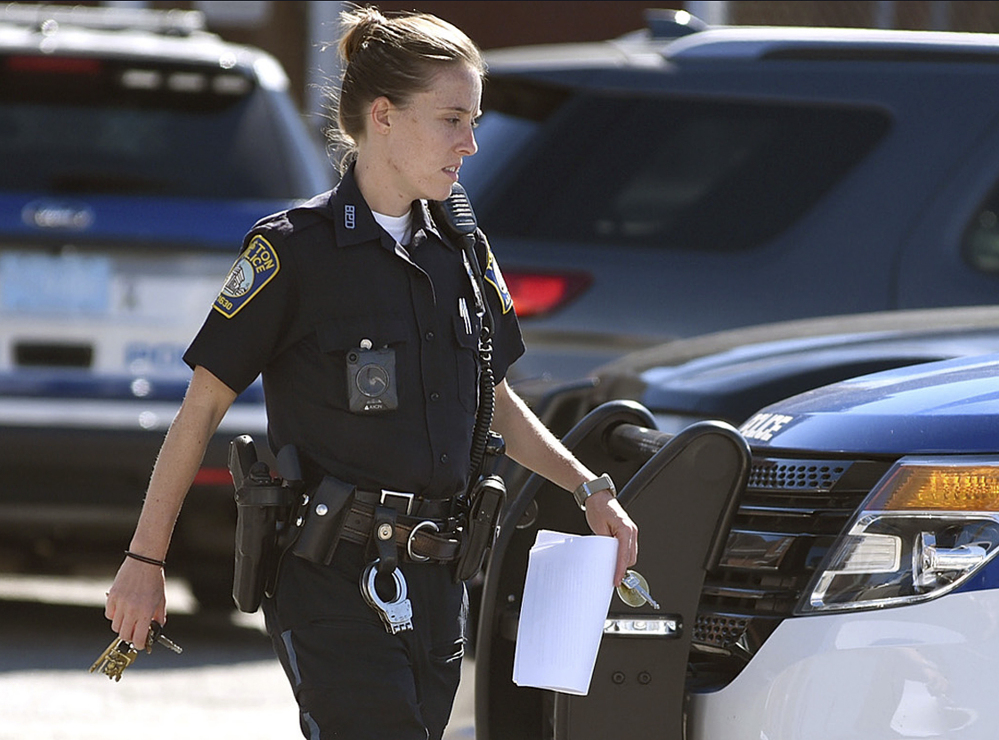BOSTON — Civil rights groups are concerned about transparency as the Boston Police Department’s test of body-worn cameras reaches its halfway mark this week.
A study intended to assess the six-month pilot, launched Sept. 12, is not yet underway, researchers told The Associated Press. And law enforcement officials haven’t provided updates three months in, activists say.
Segun Idowu, co-founder of a local group that had pushed for the cameras, said his organization’s request for more detailed information about the pilot has gone unanswered.
So, too, has a request by the AP, which sought copies of complaints, investigations, audits, budgets and other documents – as well as any relevant body camera video – starting over a month ago.
“If this is how they are running the pilot, then God help us when this moves to a full program,” Idowu said. “It lacks both accountability and transparency.”
Police spokesman Michael McCarthy said that the pilot program equipping 100 of the department’s over 2,000 officers is “progressing as planned” but that the department wasn’t in a position to provide more detailed information, likely until after an independent study has been completed next spring.
STUDY LACKS FUNDING
“I can share that officer compliance with the program is at or near 100 percent and the BPD has collected over 1,000 hours of video,” he wrote by email last month.
Jack McDevitt, director of Northeastern University’s Institute on Race and Justice, which has signed on to conduct the study, said his team hasn’t started work simply because they have not secured financing.
The study isn’t being paid for by the university or the city, which has budgeted about $500,000 for the body camera pilot effort, he said. So researchers are seeking a grant through the Laura and John Arnold Foundation.
Michael Curry, outgoing president of the Boston chapter of the NAACP, said the city should have found other ways to pay for the study, which police said was a critical piece as they weigh a department-wide rollout of the cameras.
“The clear sign when someone is not committed to doing something is when they come up with too many excuses,” he said.
If and when Northeastern receives funding, McDevitt said, the plan is to review citizen complaints and department data on officer activity and workload. Researchers will also compare the costs for the two types of cameras being tested and host focus groups with officers and community organizations.
Most large and midsize cities with some form of a body camera program haven’t been forthcoming once their programs are underway, said Harlan Yu, a principal at Upturn, a consulting firm working with civil rights groups to study police body camera programs.
One exception is Washington, D.C., where the law requires police to release a report twice a year about body camera usage, he said.
Boston community leaders say they’ve heard few complaints or problems so far from residents or officers. But the shooting by police of an emotionally disturbed man in October underscores the need for wider use of body cameras, they say.
DIVERGENT STORIES
None of the officers involved in that shooting, which prosecutors are reviewing, had been assigned a body camera.
Police maintain 31-year-old Terrence Coleman was shot after lunging at them and emergency medical technicians with a knife.
But Coleman’s mother, who had called for the assistance, says her son was unarmed when police burst through the door and shot him.
“There are such divergent versions of the incident,” said Darnell Williams, of the Urban League of Eastern Massachusetts. “We should not be in the position to have to choose between what a mother is saying and what police and EMTs are saying.”
Copy the Story LinkSend questions/comments to the editors.




Success. Please wait for the page to reload. If the page does not reload within 5 seconds, please refresh the page.
Enter your email and password to access comments.
Hi, to comment on stories you must . This profile is in addition to your subscription and website login.
Already have a commenting profile? .
Invalid username/password.
Please check your email to confirm and complete your registration.
Only subscribers are eligible to post comments. Please subscribe or login first for digital access. Here’s why.
Use the form below to reset your password. When you've submitted your account email, we will send an email with a reset code.